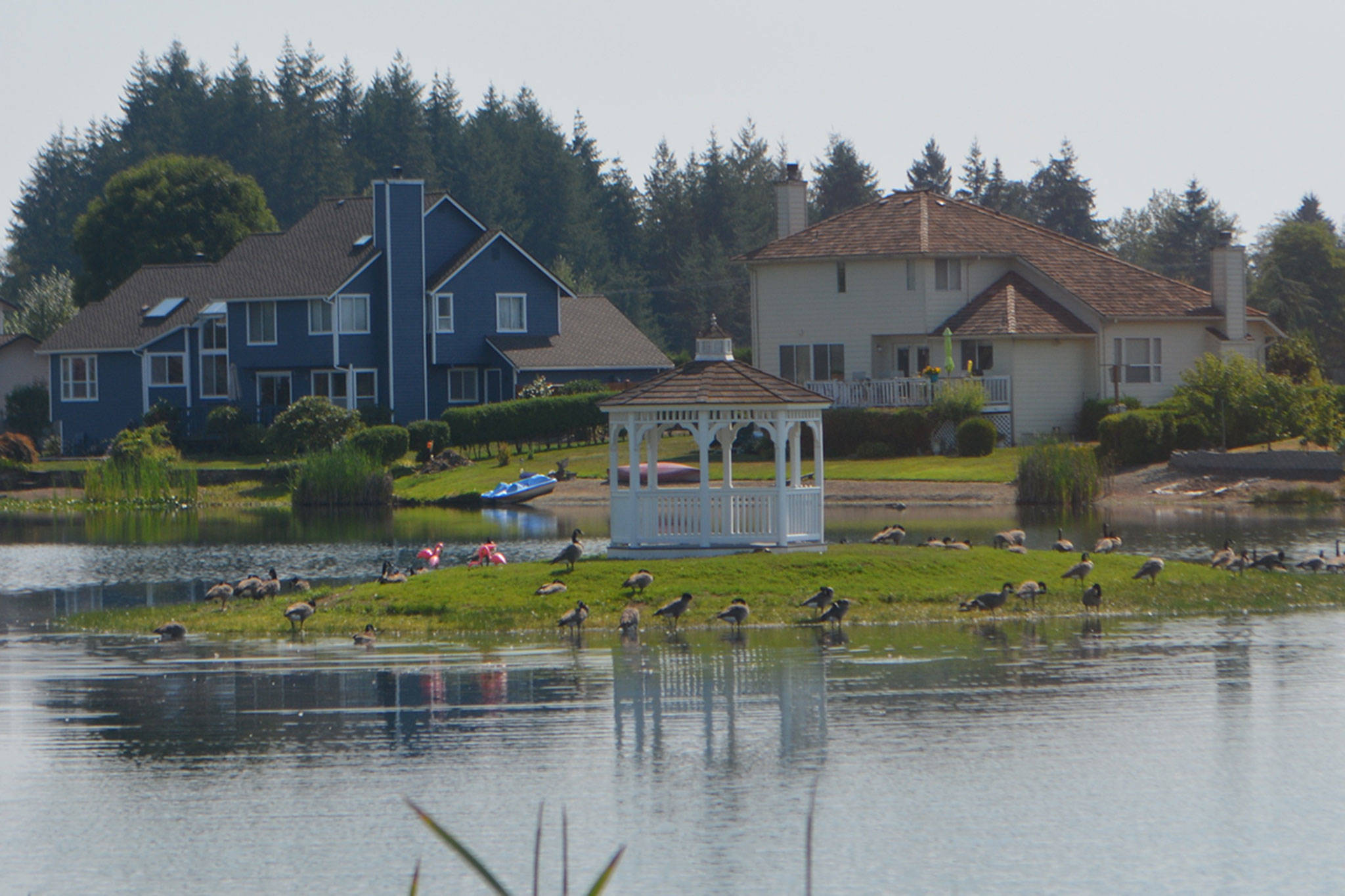MARYSVILLE – The Tulalip Tribes are appealing a decision that would allow 168 houses to be built near Nina Lake at the base of Firetrail Road.
The Grove Church has been trying to sell that land just north of the reservation for years. It was purchased by L.G.I. Homes.
Applicant Tim Bruggman wants to build 168 single family homes on the almost 57 acres at 3211 140th St. NE.
The application asks for a variance from required buffers round wetlands and streams to build two internal roads.
The project was approved by the hearing examiner. The tribe then appealed the decision.
At a public hearing, city senior planner Angela Gemmer said the city and state Department of Ecology signed off on the wetland determination. She said the wetlands still will be buffered and restored. She added roads over stream crossings will be engineered to ensure adequate capacity for stream flow and to enhance fish and wildlife habitat.
David Cayton of Core Design said new three-sided box culverts would actually improve the environment.
In public testimony, neighbor Andy Stevener opposed the proposal because his view now is of a tranquil pasture, rather than a housing development. He also is worried about increased traffic and the increase in crime in the area, including theft and a home invasion.
“It will be a challenge for law enforcement to adequately protect the new residents and their property,” he said. His other concern was standing water in the area, which could backflow into Nina Lake, harming its water quality.
Zachary Lamebull, an ecologist with the tribes, said the two streams there provide habitat for anadromous salmon, and the development would impair their water quality. He also said pollutants carried by stormwater into the stream would drain onto tribal land to the south. The West Fork of Quilceda Creek is habitat for coho and chum salmon, cutthroat trout and potentially sleelhead and bull trout.
Julia Gold, planning manager for the tribes, said, “Tulalips have invested a lot in culvert replacement and watershed enhancement to benefit fish. As proposed the project does not sufficiently protect fish habitat.”
She also said the technical analysis underestimates the potential for flooding, which would result in downstream pollution. Gold also said the area is not suited for housing of such density, there is too much noise pollution due to being so close to the BNSF tracks and Interstate 5, and there is too much traffic for a single point of entry at 140th Street NE.
As for added traffic concerns, Gemmer said a signal was not needed, but a two-way stop-controlled intersection would be built.
Regarding drainage concerns, she said stormwater detention facilities would accommodate a 100-year storm.
City traffic engineer Jesse Hannahs also talked about traffic, saying a three-lane arterial is planned in the future and that impact fees from The Grove church will help pay for that project on 140th Street NE.
The hearing examiner OK’d the project, saying siltation and erosion control measures will protect the stream. “After project construction, any temporary impacts to the streams and/or buffers will be restored to pre-existing or greater conditions,” he wrote.
Hearing examiner Kevin McDonald also said the applicant will pay impact fees to the Lakewood School District for increased student population, power lines will be placed underground and automatic fire sprinklers would be installed.
Despite all that, the tribes filed an appeal to Snohomish County Superior Court.
Bryon Moeller said he is upset about the appeal after all the years of The Grove Church working with the tribes.
“For several years, the Grove Church in Marysville has reached out to the Tribe and completed many volunteer projects to benefit Tribe members and draw our community closer together,” he wrote in a letter to the editor. Moeller said he personally has repaired and painted a fence for a tribal elder, cleaned and landscaped a children’s center, and worked at the high school. Others have worked at the Boys and Girls Club and provided carnivals for Tulalip children. Tribal councilman Les Parks said he hopes to sit down with the church and work out a solution with them. He blamed the city of Marysville and Snohomish County for relaxing their environmental laws to allow the development. “It’s about protecting the habitat and environment,” Parks said. “Salmon are at the top of our list when it comes to our culture and history.”
Hillery Francesca of the tribes spend millions of dollars protecting the environment. She said the project is an attack on the environment because of its impacts to water.
Others “don’t prioritize it, but with the tribes it’s the first thing we do,” she said.



